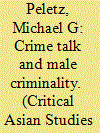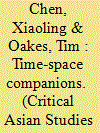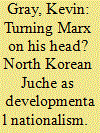|
|
|
Sort Order |
|
|
|
Items / Page
|
|
|
|
|
|
|
| Srl | Item |
| 1 |
ID:
190795


|
|
|
|
|
| Summary/Abstract |
How do high mountain communities, facing the grave effects from climate change and economic impacts of the COVID-19 pandemic on the local tourism industry, perceive and navigate multiple protracted disasters? This article takes up this question from the perspective of a specific mountain community, that of Mustang, a culturally Tibetan region of Nepal bordering the Tibet Autonomous Region (TAR), China. Our findings stem from collective ethnographic research conducted with Mustangi communities in Nepal and among the diaspora in New York City to investigate the nexus between high mountain livelihoods, particularly tourism, and the consequences of two distinct yet interlocking disasters: climate change and the global health crisis of the COVID-19 pandemic. We argue that the pandemic has undermined elements of Mustang’s economic future and simultaneously prompted a resurgent appreciation for and reliance on more traditional modes of community governance and social support. The fact that these dynamics are unfolding amidst ever-present concerns over the effects of climate change in the Himalayas, against the backdrop of labor- and education-driven outmigration, adds a profound layer of complexity to thinking about the future of tourism but also of Himalayan lives, from built infrastructures to the community resilience needed to sustain both.
|
|
|
|
|
|
|
|
|
|
|
|
|
|
|
|
| 2 |
ID:
190796


|
|
|
|
|
| Summary/Abstract |
In the past few decades many countries have experienced a surge in crime that is heavily gendered. Men are responsible for much of the rising tide of criminality (and for most criminal offenses prior to the recent surge). This dynamic threatens not only women and children but also societies and polities more generally. Additionally, it occasions serious doubts about state agents’ widely touted commitments to law and order and their oft-celebrated claims to prioritize the safety, flourishing, and overall well-being of law-abiding citizens. It is thus paradoxical that mainstream public debates on illegalities and delinquencies oftentimes do not substantively engage the strongly gendered nature of criminal transgression. This article explores such paradoxes by providing interdisciplinary perspectives on the Muslim-majority nation of Malaysia. It draws on nearly three years of ethnographic fieldwork and historical research, supplemented by analysis of court records, media accounts, and other sources, to argue that essentialized categories and conceptual dichotomies in the dominant public narratives on crime contribute to the relative elision of gender in discussions of criminality. The article also addresses the socio-political significance of these dynamics and some of their comparative and theoretical implications.
|
|
|
|
|
|
|
|
|
|
|
|
|
|
|
|
| 3 |
ID:
190793


|
|
|
|
|
| Summary/Abstract |
China's Belt and Road Initiative (BRI) is reorienting global development. Few scholars, however, query relationships between green silk road discourse, BRI infrastructure, partner state development goals, and environmental governance. This article details the roots of green silk road discourse in efforts to environmentally engineer China's desert landscapes. Much like large-scale nature-based infrastructure projects in China, BRI infrastructure projects abroad precipitate a range of socioeconomic and environmental outcomes. Through juxtaposing terrestrial infrastructure development in Ethiopia with maritime infrastructure development in Djibouti, the article demonstrates how different types of BRI infrastructure projects shape environmental governance and advance the development agendas of partner countries. Sugar plantations, roads, railways, and energy infrastructure in Ethiopia further Ethiopian state development plans while transforming Indigenous people's relations to their land and livelihoods. In Djibouti, port infrastructure and military bases figure centrally in strategic rentiership for the Djiboutian state with ancillary effects on fisheries and international trade. The article illustrates how relative articulations between East African central government development interests, environmental governance, and infrastructure are mediated by varieties of Chinese capital. The comparative analysis disrupts simplistic narratives of “win-win” partnerships and “China as threat” to partner state autonomy.
|
|
|
|
|
|
|
|
|
|
|
|
|
|
|
|
| 4 |
ID:
190798


|
|
|
|
|
| Summary/Abstract |
Based on ethnographic research carried out during the 2022 Covid-19 surge in southern China, this paper examines the roll-out of a contact-tracing tool called the Time-Space Companion project. The project exemplifies a state effort to incorporate data-driven surveillance technology into the public health apparatus during the coronavirus outbreak. By exploring the definition, identification, and management of Time-Space Companions, the paper shows that the project was used to discipline Chinese citizens and shift public health responsibilities onto them by transforming daily life into sites of public health regulation, discipline, and criminalization. The project also exemplified an on-going state effort to leverage surveillance technologies for the purposes of social management. The paper draws attention to the social repercussions that resulted when technology offered a tempting tool to enhance the infrastructural and despotic powers of mundane state actors.
|
|
|
|
|
|
|
|
|
|
|
|
|
|
|
|
| 5 |
ID:
190797


|
|
|
|
|
| Summary/Abstract |
The existing literature on North Korea has been divided over whether the country’s state ideology of Juche should be regarded as a variant of Soviet Marxism-Leninism or whether the explicit voluntarism of Juche means that it should be viewed as a distinctive indigenous ideology. Drawing on Trotsky’s theory of uneven and combined development and Gramsci’s theory of ideology, the paper argues that North Korea’s status as a geopolitically insecure postcolonial country engaged in a forced march from “backwardness” to a modern industrialized economy has had a decisive impact on both the form and content of North Korean state ideology. Understood as a form of developmental nationalism that seeks not only to legitimize authoritarian rule but also to create a collective subjectivity suited the task of rapid catch-up national development, Juche constitutes a combined ideological form that rests on Marxist-Leninist origins but has deliberately drawn on existing forms of “common sense” conducive towards the mass mobilization of society. In doing so, this paper critically engages with the argument that the voluntarism of Juche represents a decisive break from the supposedly objective laws of Marxism and Marxism-Leninism, thereby “turning Marx on his head.”
|
|
|
|
|
|
|
|
|
|
|
|
|
|
|
|
| 6 |
ID:
190794


|
|
|
|
|
| Summary/Abstract |
This study explores the post-9/11 ramifications of the Global War on Terror (GWOT) in South Waziristan, Pakistan. It discusses how the post-colonial state has undermined state and tribal political relations which constituted political order first during the British colonial era and later in Pakistan. Furthermore, it explores how the post-colonial state has shared de facto sovereignty in the region with a “good” Taliban in the shape of a peace committee. To understand the Pakistan post-colonial state’s engagement with South Waziristan, it is necessary to make sense of the ongoing GWOT and the resulting necropolitics of life and death in South Waziristan. The paper explores how residents have confronted different scenarios when they encounter the new powerholders. It details the everyday experiences, life stories, and socio-political existence of the people of South Waziristan as an alternative narrative to how mainstream media and academic sources have discussed this area.
|
|
|
|
|
|
|
|
|
|
|
|
|
|
|
|
| 7 |
ID:
190799


|
|
|
|
|
| Summary/Abstract |
This paper discusses how different groups within Myanmar’s population respond to multiple crises caused by the 2021 military coup, the economic and social consequences of multiple waves of Covid-19 and increasing global food and fuel prices. It is based on monthly observation reports (MOR) by local researchers to focus on the range of actions taken by Myanmar’s silent accommodating majority. Contrary to conventional studies that treat “loyalty” and “passive resistance” as separate categories of individual or collective responses to government failures, this paper introduces “accommodation” as a strategy to reflect actions by those who have engaged in both compliance and passive resistance to deal with the military dictatorship in Myanmar. Those who practice accommodation strategies prioritize safety-first approaches that avoid open resistance to the military regime while simultaneously challenging its claim to legitimacy. Some of the strategies that undermine the military regime’s claim to legitimacy, however, such as the civil disobedience movement in education and healthcare, further deprive the state of the resource to serve the needs of the general population and thus have detrimental and long-term impacts on individuals who use these.
|
|
|
|
|
|
|
|
|
|
|
|
|
|
|
|
|
|
|
|
|